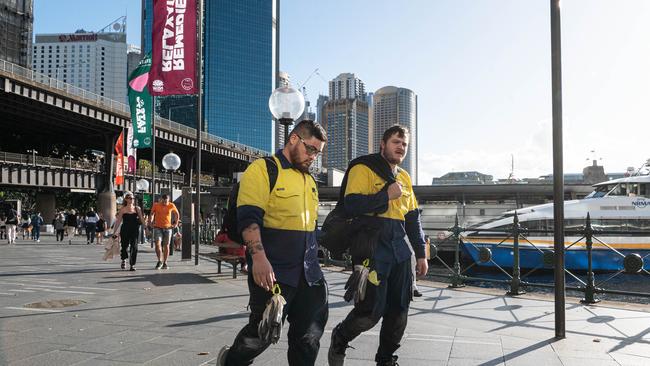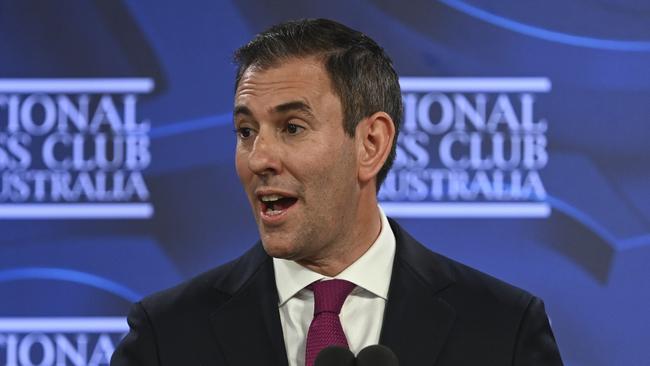Tradies to be limited in work if climate change left unchecked, Intergenerational Report says
The impact of climate change will reverberate across the Australian economy in the coming decades, and will change the way millions of Aussies work.
Climate change could force tradies to stop working during the hottest parts of the day, leading to millions of hours in lost productivity and stripping up to $423bn from the budget from over the next four decades.
The “acute” and “chronic” impacts of climate change on Australia’s economy over the next 40 years have been laid bare in the latest iteration of the Intergenerational Report, released by federal Treasurer Jim Chalmers on Thursday.
The report found that inaction on climate change could lead to labour-intensive workers – such as labourers, tradies and machine operators – to be specifically impacted by soaring temperatures, namely a limited capacity to spend time outside.
Government forecasts predict a 0.8 per cent reduction in labour productivity if temperatures rise by four degrees by 2063, with agriculture, tourism, manufacturing and construction all particularly exposed.

The report also sets out the risk of not meeting the Paris Agreement, warning that unless global warming is restricted to 2C or less over the next 40 years, the Australian economy could lose anywhere between $135bn and $423bn in today’s terms because of the impact on workers productivity, crops, and tourism.
“If global temperatures were to increase by up to 3C or over 4C, without adaptive changes to current ways of working, Australia’s aggregate labour productivity levels could decrease by 0.2 to 0.8 per cent by 2063,” the report said.
If temperature increases are limited to 2C, however, the economy could benefit from up to $155bn in today’s dollars.
“This is equivalent to 26 to 41 million more hours of work in 2063, underscoring the value of timely action to reduce emissions,” the report said.
“Investing in targeted adaptation measures to limit worker heat exposure, such as strategic planting of trees or altering building designs to enhance passive cooling, can also mitigate the labour productivity impacts of higher temperatures to some degree.”
Dr Chalmers said when it comes to thinking about the pressures impacting the budget and economy, and society as a whole, climate change was among the most obvious.

“I think our approach to productivity in this country has been unnecessarily narrow – it has become almost exclusively a conversation about industrial relations and tax … obviously important levers, but so is energy policy, so is policy about human capital,” Dr Chalmers told the National Press Club.
“And I believe that the productivity challenge has changed sufficiently, and our approach to productivity needs to change with it.”
The report also warns that the physical effects of climate change will put strain on the budget, calling for “timely investment” in climate change adaptation to build resilience and “reduce the costs” over coming decades.
“Dealing with climate change is a global environmental and economic imperative,” Dr Chalmers said.
“The IGR makes clear the costs that could come with rising temperatures.”
The report also lays bare the challenge that transitioning to net-zero will have on the structure of Australia’s economy, namely because the government will lose significant revenue from traditionally mining and the fuel excise.
Around $225bn will need to be spent to decarbonise heavy industries and transition the energy system.





To join the conversation, please log in. Don't have an account? Register
Join the conversation, you are commenting as Logout